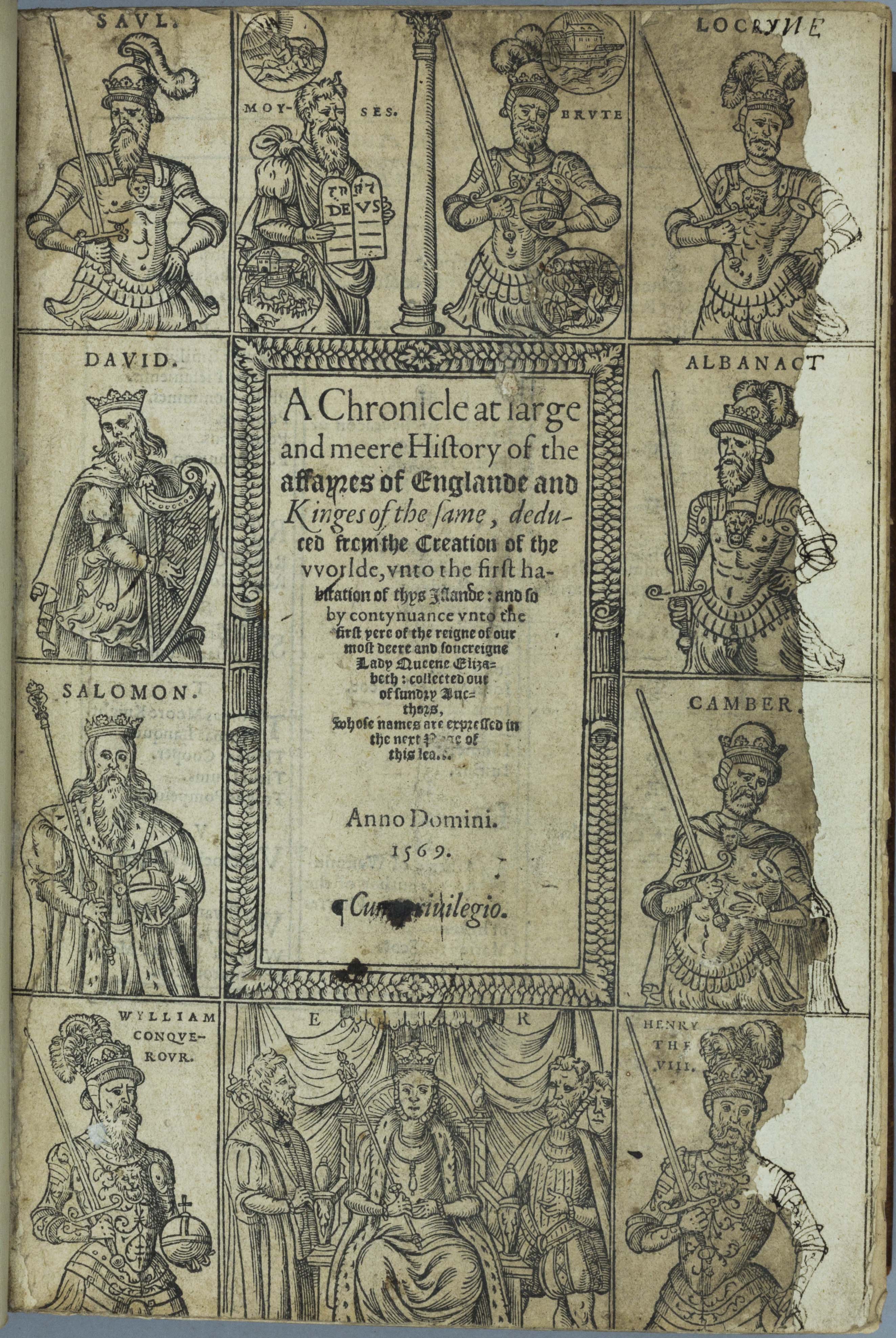
London: R. Tottel and H. Toy, 1569
Cc [Grafton] fol. SR
Not all changes of the Reformation were noted in near-contemporary accounts, with the emphasis of chronicles on royalty, pomp, and turbulence. This chronicle by Protestant printer and reformer Richard Grafton (1506/7-1573) dwells for the year 1538 upon a muster in the city of London, including the clothes people wore, with a paragraph about a skirmish between Henry VIII and the pope about a meeting called at Mantua, and briefer references to fortifications and to some executions for treason. Yet it is silent about legislation of the year which had the longest effect. In 1538 Thomas Cromwell ordered that every clergyman should ‘keep one book or register, wherein ye shall write the day and year of every wedding, christening, and burying, made within your parish for your time’. The maintenance of parish registers throughout England and Wales to record all births, marriages and deaths was intended to provide the basis of certain information about descent which was requisite for a better order in rights of inheritance, and achieved its aim. It has also proved a boon for local and family historians and others, with far-reaching consequences for the study of the English past